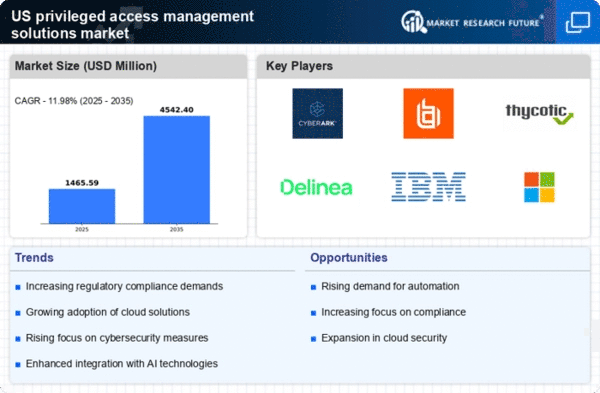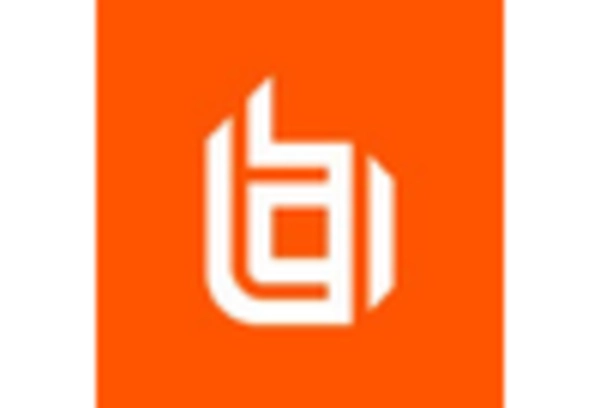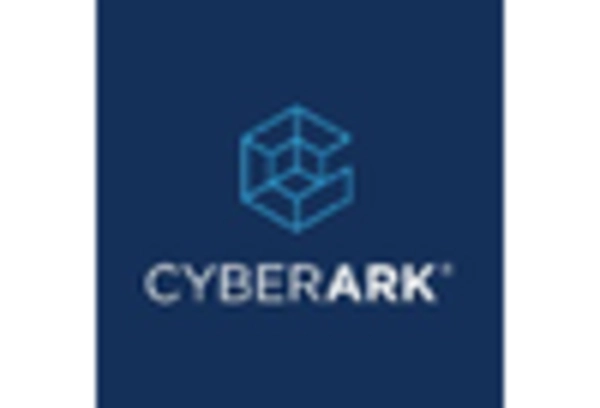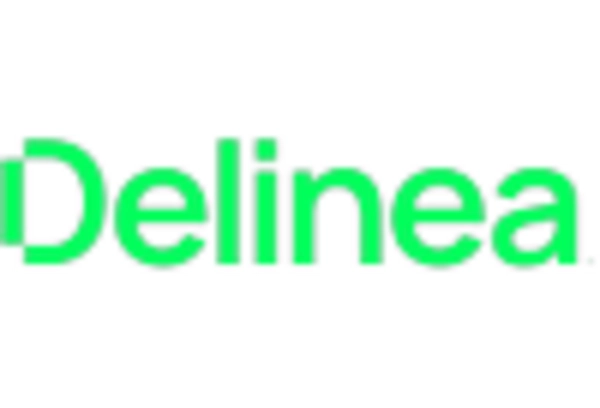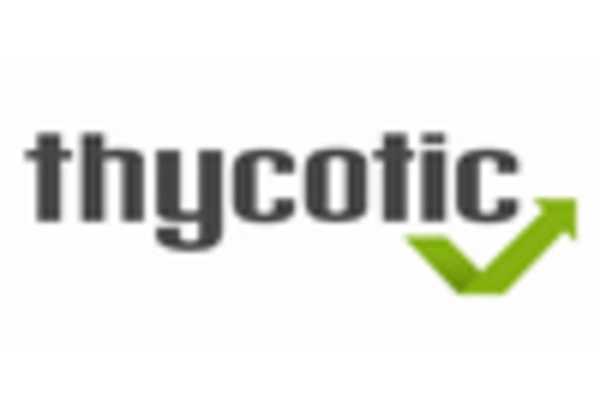Shift Towards Remote Work
The shift towards remote work has significantly impacted the privileged access-management-solutions market. As more employees work from various locations, organizations face challenges in managing access to sensitive information and systems. This trend necessitates the implementation of advanced access management solutions to ensure that only authorized personnel can access critical resources. In 2025, it is estimated that remote work will account for over 25% of the workforce in the US, further emphasizing the need for secure access protocols. Companies are increasingly adopting privileged access management tools to facilitate secure remote access while maintaining compliance with industry regulations. This shift is likely to drive sustained growth in the privileged access-management-solutions market.
Rising Cybersecurity Threats
The increasing frequency and sophistication of cyberattacks is a primary driver for the privileged access-management-solutions market. Organizations are compelled to enhance their security measures to protect sensitive data and critical systems. In 2025, it is estimated that cybercrime will cost businesses globally over $10 trillion annually, highlighting the urgency for robust security solutions. As a result, companies are investing heavily in privileged access management to mitigate risks associated with unauthorized access. This trend is particularly pronounced in sectors such as finance and healthcare, where data breaches can lead to severe financial and reputational damage. The privileged access-management-solutions market is thus experiencing significant growth as organizations seek to safeguard their assets against evolving threats.
Regulatory Compliance Pressures
Regulatory compliance is a significant driver for the privileged access-management-solutions market. Organizations are under constant pressure to adhere to various regulations, such as GDPR and HIPAA, which mandate strict controls over data access and management. Failure to comply can result in hefty fines and legal repercussions, prompting businesses to invest in robust access management solutions. In 2025, it is anticipated that compliance-related costs will exceed $5 billion for US companies, underscoring the financial implications of non-compliance. As organizations strive to meet these regulatory requirements, the demand for effective privileged access management tools is expected to grow, positioning the market for continued expansion.
Demand for Operational Efficiency
Organizations are increasingly recognizing the need for operational efficiency, which is driving the privileged access-management-solutions market. By streamlining access controls and automating processes, businesses can reduce the time and resources spent on managing user privileges. In 2025, it is projected that companies could save up to 30% in operational costs by implementing effective privileged access management solutions. This efficiency not only enhances productivity but also minimizes the risk of human error, which is a common vulnerability in access management. As organizations strive to optimize their operations, the demand for sophisticated privileged access-management solutions continues to rise, indicating a robust growth trajectory for the market.
Technological Advancements in Security
Technological advancements are playing a crucial role in shaping the privileged access-management-solutions market. Innovations such as biometrics, multi-factor authentication, and blockchain technology are enhancing the security landscape, making it imperative for organizations to adopt these solutions. In 2025, the market for biometric authentication alone is projected to reach $30 billion, reflecting the growing reliance on advanced security measures. As organizations seek to leverage these technologies to protect their sensitive data, the privileged access-management-solutions market is likely to benefit from increased investment in cutting-edge security solutions. This trend indicates a dynamic evolution within the market, driven by the need for enhanced security in an increasingly digital world.


